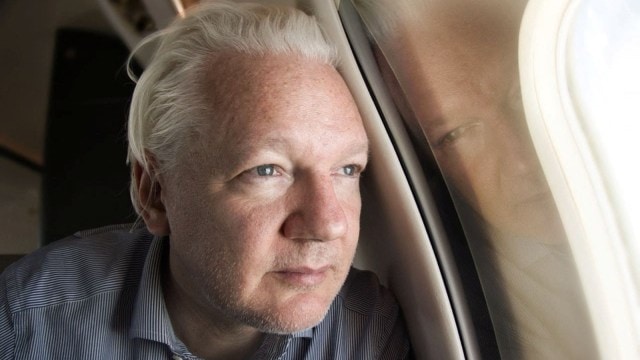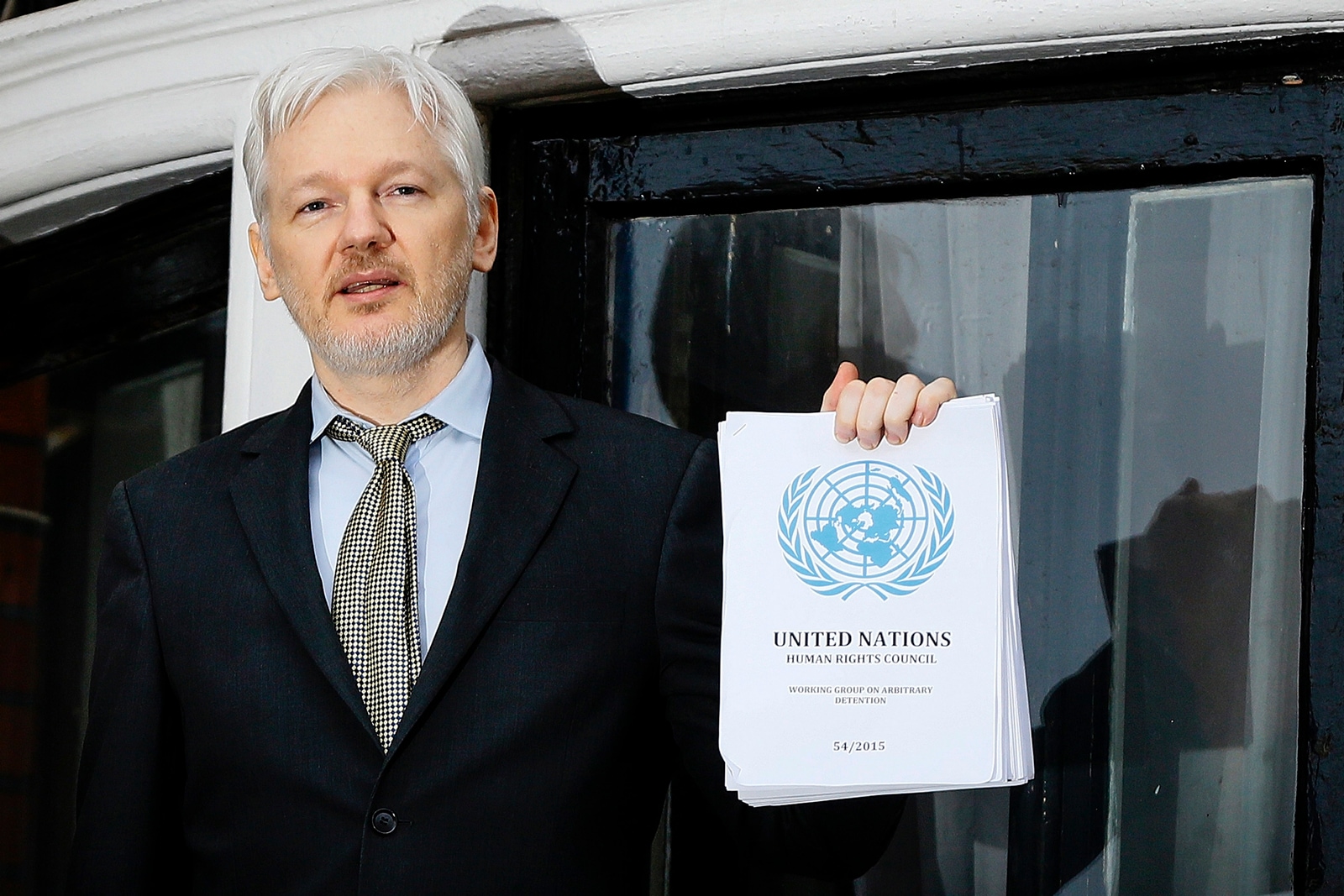
Julian Assange is not a person. He is an idea. Ever since he catapulted into uncertain fame in 2010, when as the founder of WikiLeaks, he was accused of leaking thousands of documents that betrayed the US American military national security, he has been a figure of public scrutiny and legal contestation. While his direct co-conspirator Chelsea Manning was released from prison after seven years when President Obama commuted her sentence, Assange has been mired in a protracted battle for freedom. From the now-dropped charges of sexual assault brought in by the Swedish government, to him being dramatically dragged out of the Ecuadorian embassy in the UK, where he spent 42 months in isolated prison since 2019, stories of Assange have often been produced as a modern-day Odyssey, albeit of a not very likeable protagonist.
Assange is a person of interest not only for the US American justice and political systems but also for a global understanding of what constitutes freedom, liberty, and access to information in our digital networks. Julian Assange was perhaps one of the first icons of a global internet activist who showed the challenges of geo-territorial sovereignty when it comes to governing the internet. The distributed nature of the internet means that the origin of the information, where it is leaked from, where it is stored, what country the intermediary platforms are registered in, and the location and citizenship of the people identified as the leakers can all be different. The truly extraterritorial nature of Assange’s activities has long since been studied as both the hope for information activists who fight for freedom of speech and expression to hold truth to power, as well as a warning tale for internet regulators to develop inter-operable frameworks of regulating something that is truly post-national.
However, at the historic moment of his release, where he has struck a plea bargain with the US American justice system, pleading guilty to a single count of espionage which would result in an already-served sentence, it is time to focus not on Assange as a person but the ideas that he embodies. His supporters and networks will celebrate his release from incarceration and his return to his native country of Australia, having fought the extradition attempts of the US American government. But, I want to take the time to recognise that Assange and the political theatre that has surrounded him signifies a much more fundamental set of questions about access to knowledge and freedom of information. These questions become significantly important in a world that is increasingly shifting towards authoritarian clampdown and persecution of people, especially journalists and information service providers.
There are two things at stake when thinking about Julian Assange’s case and the long-drawn ordeal that he has gone through at the behest and hands of multiple governments who chose to punish him, not just for what he has done but for what he has inspired others to do. WikiLeaks was the OG of the internet serving as a whistleblower medium. It was one of the most visible and pioneering spaces that showed the power of decentralised, collective, civic interest space that could call out, expose, and threaten the almost unlimited power of militarised countries and their shaping of global territories.

The capacity to take confidential information that glosses over and obfuscates human rights violations and abuses of different governments, and naming those who are complicit in this, has been the most spectacular show of the power of collective action organised through internet technologies. WikiLeaks was a resistance like the one no country, especially the highly militarised and regulated countries, had ever seen. Assange’s ideological position that information for the public good should be in the hands of the public might have polarising responses, but there is no denying that he is emblematic of the whistleblowing that the internet has enabled, sending states scrambling to figure out how to contain, regulate, and govern in these new systems.
Second, and perhaps more tellingly, Assange is the figure of public distrust in legacy systems globally. Across the world, especially since our collective experience of the COVID pandemic, there is a growing mistrust in governments and authorities, leading to misinformation, radicalisation, and apathy in different forms. Containing Assange was also a way of ensuring a chilling effect, warning the disaffected people about the consequences of their actions if they choose to challenge power.
This is particularly visible in the young people’s movements around the world right now, where those who seek to challenge state information, produce counter-narratives and have dissenting opinions are being tried, imprisoned, and charged with similar charges of espionage and domestic terrorism. Assange did not just pay the price for his own ideological convictions — he paid the price for everybody who believed in his doctrine of free information. He has been made a martyr to the cause; a cautionary tale of what happens if you expose those in power. It is because of this that I insist that we cannot think of Assange as a person. We might dislike him or disagree with him, but we have to accept that he represents the global state of information authoritarianism that we are living through.
Once Assange gets the verdict and becomes a free person in Australia, it remains to be seen whether he will continue fighting for his beliefs or become an exemplary case of somebody broken by the system. Assange has done more than an individual can, to advocate for fundamental freedom of information, and he has been supported by and inspired generations of internet activists who continue to take the risk and leak and spread information that is otherwise shrouded in silence in the name of national security. Even if Assange doesn’t do anything more, we owe him gratitude for what he has started, and continue to appreciate the extraordinary role that journalists, information activists, and whistleblowers play in making more transparent, equitable, and open societies.
The writer is professor of Global Media at the Chinese University of Hong Kong and faculty associate at the Berkman Klein Centre for Internet & Society, Harvard University, USA


